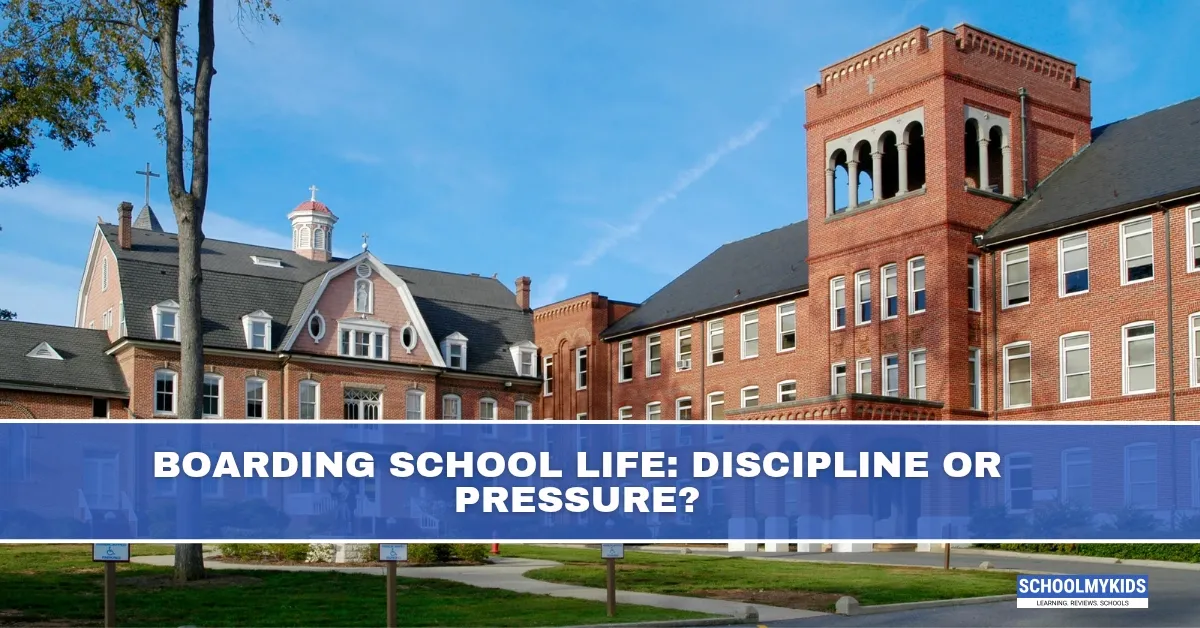Boarding schools have long been associated with prestige, discipline, and academic excellence. Often portrayed in literature and media as institutions that shape character and leadership, they promise to instill independence, responsibility, and intellectual growth. However, behind the stone walls, uniform codes, and morning assemblies lies an ongoing debate: Is boarding school life truly a model of constructive discipline, or does it become an overwhelming source of pressure?
This article explores both sides of the coin—how boarding schools can be both nurturing and demanding, depending on the perspective, context, and experience.
The Discipline Dimension: Building Routine and Responsibility
1. Structured Daily Life
One of the most notable aspects of boarding school life is its predictable and disciplined routine.
- Wake-up calls at dawn, fixed meal times, study hours, sports periods, and lights-out rules create a tightly scheduled lifestyle.
- This fosters time management, self-control, and accountability—skills crucial for adult life.
Educational Insight: A study published in the Journal of Youth and Adolescence (2017) found that students from structured environments are more likely to develop executive functioning skills like attention control and task initiation.
2. Independence and Maturity
Living away from family teaches students to:
- Solve problems independently
- Manage their own academics, health, and social lives
- Build resilience through self-reliance
Quote from an alumna: "I learned more about myself in three months of hostel life than in years at home." – Former student of Rishi Valley School
3. Peer Learning and Community Bonding
With no family at hand, peers become family.
- Learning to coexist, share, and support others is central to the boarding school experience.
- Leadership roles in hostels and student councils provide early exposure to responsibility.
Fact: According to research by The Association of Boarding Schools (TABS), 77% of boarding school students reported feeling prepared for college life, compared to only 36% of public school students.
The Pressure Side: When Structure Becomes Stress
While discipline and routine offer clear advantages, there are serious concerns about the emotional and psychological toll of boarding school life, particularly on younger students.
1. Emotional Separation and Loneliness
Being away from family can create feelings of:
- Homesickness
- Emotional isolation
- Difficulty adjusting, especially for introverts or young children
Psychological Note: According to a 2020 study by the Indian Journal of Child Psychology, 42% of boarding school students aged 10–15 showed signs of mild to moderate anxiety, primarily due to homesickness and social adjustment issues.
2. Rigid Rules and Loss of Autonomy
What some call discipline, others may perceive as oppressive control:
- No personal gadgets
- Limited freedom of expression
- Mandatory participation in activities regardless of interest
This can lead to resentment, rebellion, or suppressed individuality.
3. Academic and Performance Pressure
Boarding schools often have:
- Highly competitive academic environments
- Emphasis on excellence in sports, leadership, and discipline
- Strict punishments for underperformance
While some thrive under pressure, others may crumble, especially without a personal support system nearby.
Case in Point: In 2022, media reports highlighted a rise in mental health cases in elite Indian boarding schools, prompting institutions to introduce counseling programs and mindfulness workshops.
A Matter of Balance: Key Takeaways
Whether boarding school life is a form of healthy discipline or a source of unhealthy pressure depends on several factors:
| Factor | Discipline | Pressure |
| Age of Entry | Teenagers adapt better | Young children may feel abandoned |
| School Philosophy | Holistic development models promote growth | Rigid academic-focused systems cause stress |
| Support Systems | Presence of mentors and counselors help | Lack of emotional support adds burden |
| Peer Culture | Positive community builds confidence | Bullying or exclusion increases anxiety |
Conclusion: Two Sides of the Same Coin
Boarding schools are neither universally ideal nor inherently flawed. For many, they offer an environment that fosters independence, discipline, and leadership. For others, they can be a place of emotional strain, excessive competition, and identity suppression.
The key lies in the balance between structure and support. A good boarding school is one that understands this delicate balance—combining discipline with empathy, achievement with well-being, and tradition with adaptability.
Ultimately, whether the boarding school experience is more about discipline or pressure is not just a question of institutional structure—but of individual experience, preparedness, and the school's emotional ecosystem.








Be the first one to comment on this story.